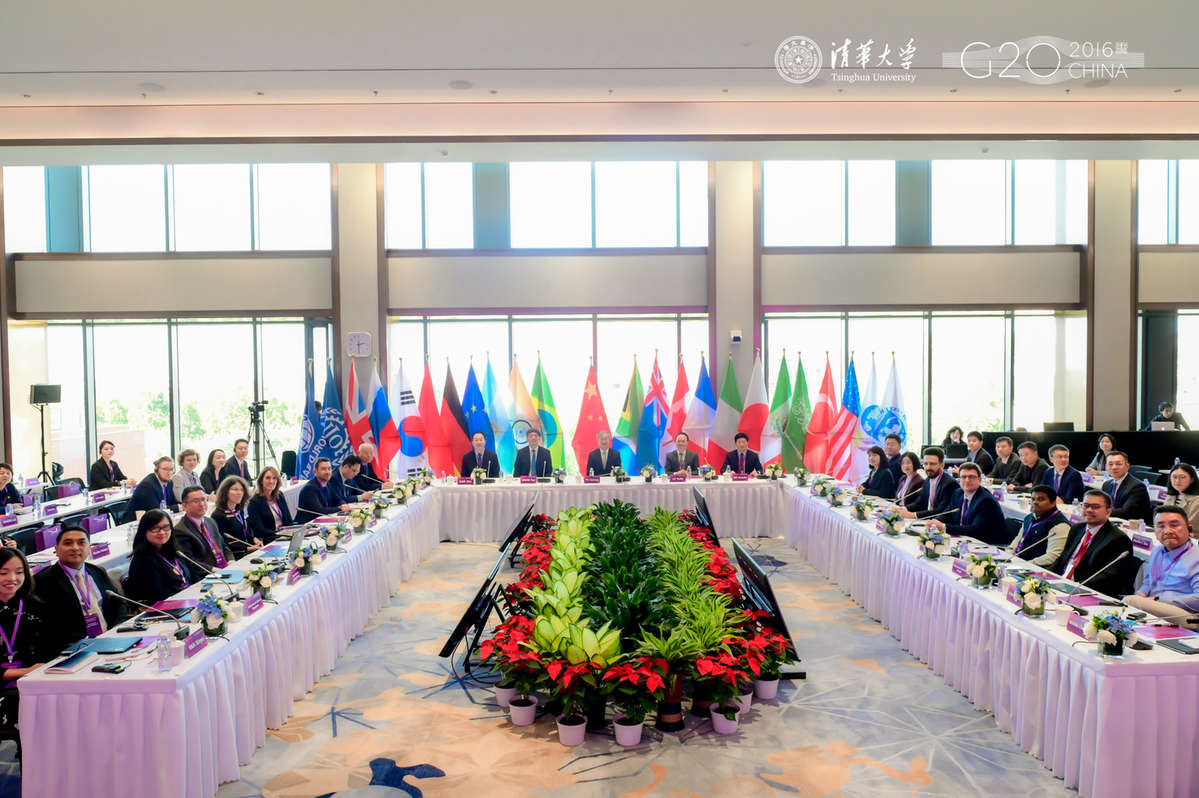
The 2024 G20 Entrepreneurship Roundtable was held at School of Economics and Management, Tsinghua University, on Oct 15-16. [Photo provided to chinadaily.com.cn]
The G20 Summit in Rio de Janeiro will help foster global consensus and bridge differences, creating a favorable environment for entrepreneurship that can help tackle today's global challenges and support sustainable development, said Gao Jian, director of the Entrepreneurship Research Center on G20 Economies at Tsinghua University.
"The G20 is a broad international mechanism that includes both developing and developed countries, ensuring representation from various regions and continents. Each participant plays a unique role. Therefore, the annual G20 Summit and its agenda are indeed beneficial for global economic development," Gao said.
"This year's theme — 'Building a Just World and a Sustainable Planet' — indicates that in global development, every economy aims to create more employment opportunities, secure a good position in global trade, and avoid falling behind. However, this must not come at the expense of sustainable development, which requires addressing employment issues and the green and digital transition," said Gao, who is also professor at the department of innovation, entrepreneurship and strategy at Tsinghua's School of Economics and Management.
"Only through global cooperation and joint efforts can we achieve sustainability. And in this process, companies need to update technologies, reduce carbon emissions and foster new innovation.
"Innovative entrepreneurial companies are essential for providing new solutions to solve these problems. For instance, China's globally leading electric vehicle industry, largely driven by startups, exemplifies this," Gao said.
The Entrepreneurship Research Center on G20 Economies was established in 2017 to promote the implementation of the consensus reached by G20 leaders at the Hangzhou Summit the previous year.
In the G20 Entrepreneurship Action Plan adopted at the G20 Labour and Employment Ministers' Meeting in 2016, it pointed out that waves of technological change, economic globalization and industrial and demographic changes present new challenges and opportunities for G20 economies in both the short and longer terms. The plan urged for G20 members to redouble efforts to support a more innovative pattern of inclusive economic growth, with new engines of development and new pathways for job growth.
Jointly established by the Ministry of Human Resources and Social Security and Tsinghua University, the research center tracks and analyzes the progress of the G20 Entrepreneurship Action Plan and shares valuable entrepreneurial practices and experiences among G20 members.
Since its inception, the center has hosted an annual G20 Entrepreneurship Roundtable to review and evaluate the progress of G20 members in implementing the entrepreneurship action plan.
"Overall, G20 members are keeping pace with the times in entrepreneurship, especially in emerging industries like the digital economy and green transition. In terms of entrepreneurial policies, developed countries tend to have more detailed and systematic policies, while developing countries may lag in this aspect," Gao noted.
"China, as a G20 member, has significant advantages in providing entrepreneurship services. For example, China emphasizes tailored policies for different groups, such as incubation services for young people, women and new university graduates, provided by social institutions. This is considered an advanced practice internationally," Gao said.
"China's reform and opening-up policies are also conducive to global economic development and openness. As an inclusive nation promoting globalization, China's development benefits global entrepreneurs. Events like the China International Import Expo and the Canton Fair also stimulate international entrepreneurship," said Gao.
Reviewer1: Huang Mengyao
Reviewer2: Zhang Yanlan
Reviewer3:Tang Caihong
English Reviewer: Shen Fei
